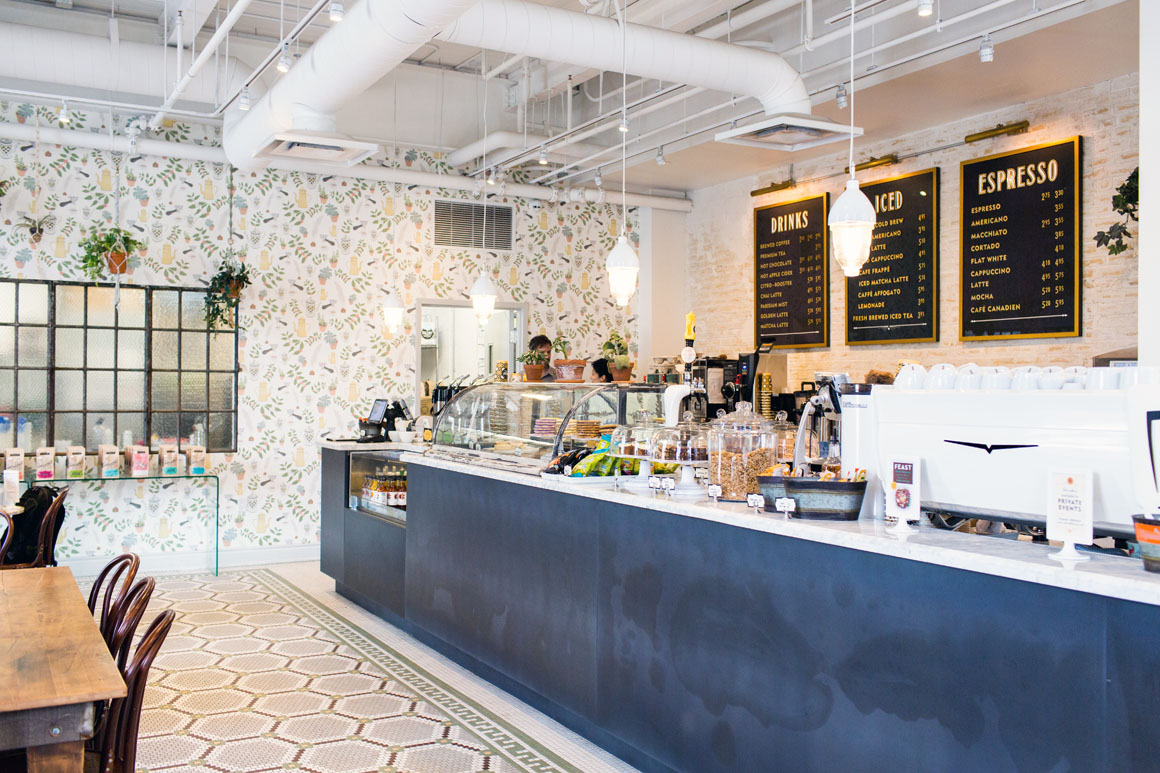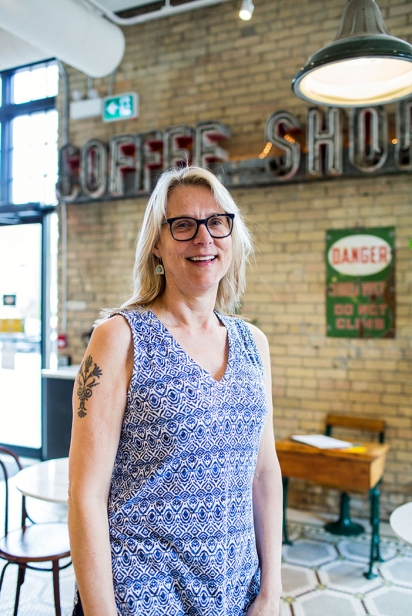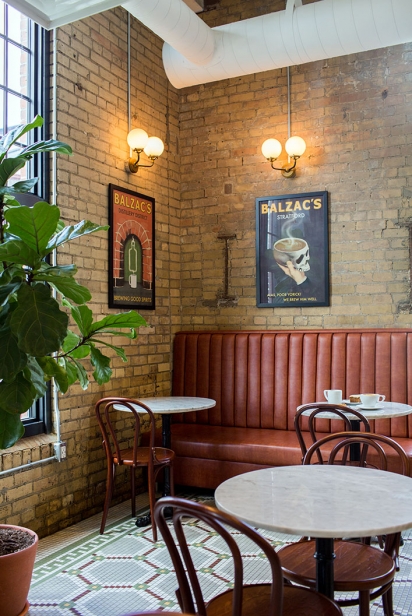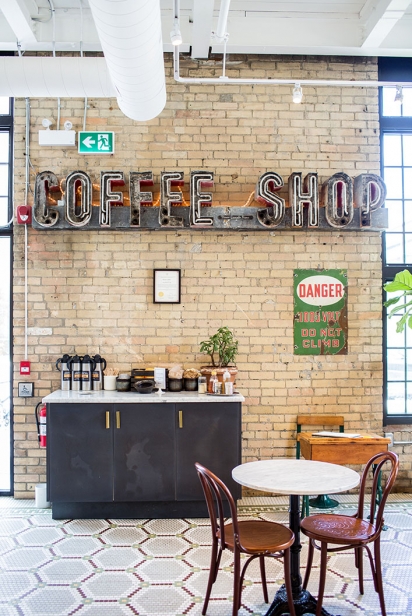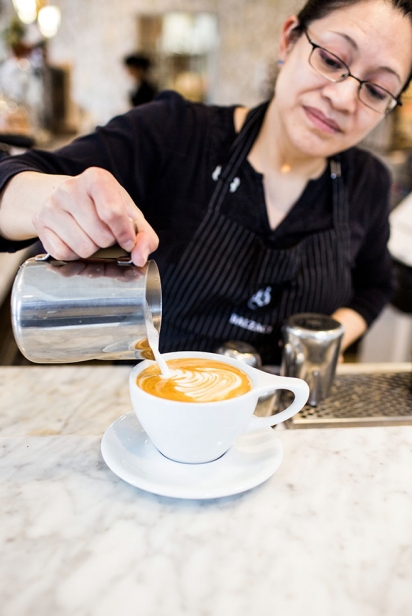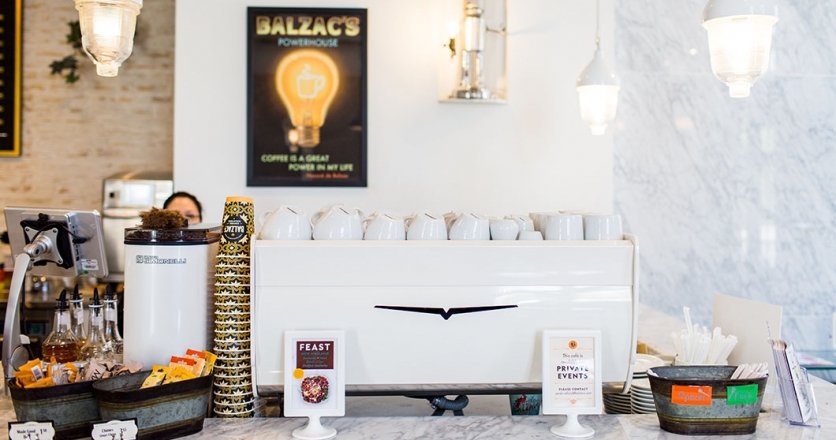Black Coffee, Green Thinking
From the time the first Balzac’s café opened in Stratford, Ont. in 1996, founder Diana Olsen knew she wanted to create something unique for the North American coffee scene.
After graduating with a degree in French literature, Olsen spent a year and a half in France. Passing many pleasant afternoons immersed in the grand cafés of Paris, she found a kindred spirit in the novelist Honoré de Balzac — a famed coffee-lover himself who declared that “the café is the people’s parliament.” Taking this sentiment to heart, she travelled to San Francisco in 1993, where she expanded her java knowledge by studying the craft of coffee-bean roasting and selection at the West Coast Specialty Coffee Training Institute.
Drawing on her experience abroad, Olsen had a clear vision of what she wanted to create with her own coffee business. “The inspiration for Balzac’s was from the cafés in Paris where ‘takeout’ and ‘fast-food’ are not the driving forces,” she explains. “We have always considered the health, the quality, the source and sustainability amongst our founding values.”
Now, after having established 14 cafés in Ontario (with more in the works), Balzac’s prides itself on being a central gathering place for the diverse people and communities it serves. And with that aim, Balzac’s has taken on the role of a sustainability pioneer in the hospitality industry, earning the company accolades such as “Toronto’s Greenest Coffee Shop” from Live Green Toronto, a city-wide initiative that engages businesses through programs, grants and incentives to reduce greenhouse gas emissions. Regarding the café’s sustainable practices, Olsen says, “a lot of what we do falls under the radar and customers don’t necessarily notice, so it feels really nice to be recognized.”
In addition to offering fair-trade and organic-certified coffee, Balzac’s prioritizes sourcing local, artisanal brands and foods for its menu. It also boasts a robust waste-management program with many recyclable and biodegradable disposable products, such as coffee cups, cutlery and straws, as well as compost programs at five of its café locations. One of the company’s most recent sustainable endeavours is a new coffee blend in collaboration with Canadian writer Margaret Atwood.
A portion of its proceeds benefits the Pelee Island Bird Observatory, a not-for-profit dedicated to the study and conservation of migratory birds.
Overall, one of Balzac’s most significant sustainable practices is its partnership with FoodRescue.ca, an online platform from Canadian charity Second Harvest, which connects perishable, unsold food from businesses directly with local social services, such as shelters, seniors’ centres and after-school programs in need. Since joining the initiative in 2018, Balzac’s has donated more than 1,000 meals to the communities in which it operates, all the while preventing 1,762 kilograms of greenhouse gases from entering the atmosphere by recovering all that fresh, unsold food from going to waste.
When it comes to customers supporting Balzac’s green initiatives, bringing a re-usable mug makes a huge impact, according to Olsen. “Beyond that,” she says, choosing to dine “in our cafés ensures nothing will go to the landfill, plus guests can take a few minutes to sit and relax or meet with a friend. That’s what a café is all about.”
As for what the future holds, Olsen credits LEAF (Leaders in Environmentally Accountable Foodservice) as a guiding force. As an independent, nation-wide certification program for the Canadian hospitality industry, LEAF offers accreditation to restaurants based on a variety of factors, from energy and water use to green policy and innovation. “Each year,” explains Olsen, “they conduct an audit of our cafes and let us know the areas to improve with new ideas and programs.” Balzac’s was once again named one of Canada’s greenest restaurants by LEAF this year. Olsen sees the win as an opportunity to grow and innovate even further next year.
Looking ahead, she says, “we want to continue to push ourselves harder to be better. Our employees are a huge part in our success, and they are always communicating ideas to improve our practices. They sincerely care and are proud to be a part of an organization that does, too.”
Balzac’s Coffee Roasters
Locations in Toronto, Niagara-on-the-Lake, Port Dalhousie, Stratford, Kitchener, Guelph, Waterloo, and Kingston
balzacs.com | @balzacs


